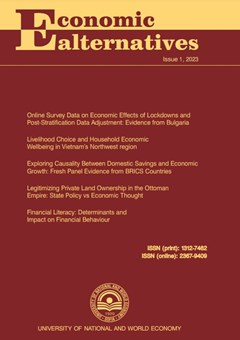The ECB’s Unconventional Monetary Policy Effects on the Economies of Bulgaria and Ireland
Authors: Atanas Atanassov, Silvia Trifonova, Siva Ram Vemuri
Abstract
This paper analyzes the impact of the ECB’s euro short-term interest rate – the Euro overnight index average (EONIA) – on the long-term government bond yields in one economy in the non-euro area (Bulgaria) and one economy in the euro area (Ireland) through the interest rate transmission channel. The paper’s main contention is that the ECB’s non-standard monetary policy directly affects the euro area member states, such as Ireland. At the same time, its impact on the changes in the interest rates in Bulgaria is indirect. The result from the econometric modeling demonstrates that if EONIA rises by 0.1 percentage point, the yields on the long-term government bonds in Ireland and Bulgaria will increase, respectively, by 0.175 and 0.123 percentage points. Given fixed levels of EONIA each month, the interest rates on the 10-year government bonds in Ireland and Bulgaria are expected to decline, respectively, by 0.006 and 0.036 percentage points. The large-scale bond-buying programmes and the negative deposit rates have driven significant increases in negative-yielding debt in the euro area, including in Ireland. In contrast, Bulgaria’s long-term government bond yield is positive but dropped significantly during the reviewed period (January 2012 to December 2020).

